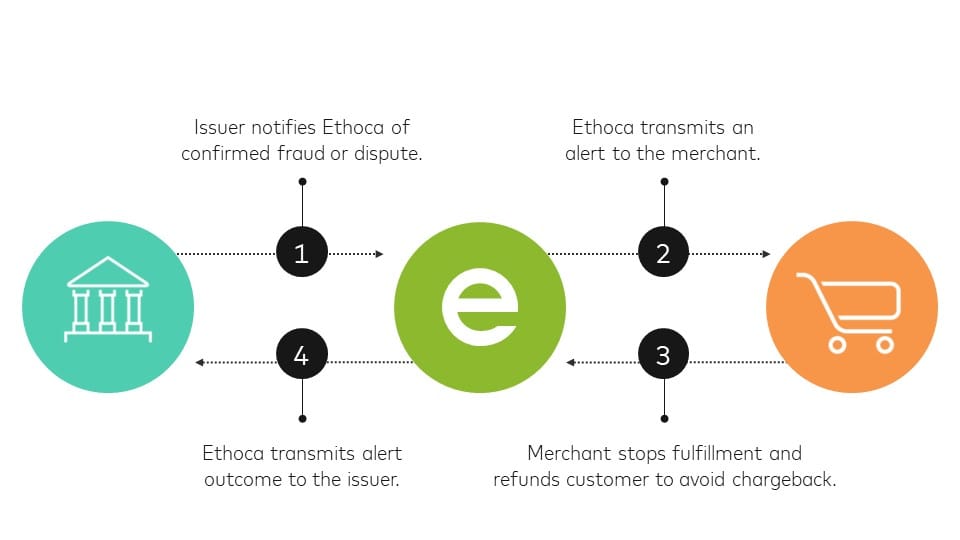
SuperPay helps accountants like yourself get paid as quickly as possible. Choose our platform to power your one-off and recurring billing.
In today's fast-paced and constantly evolving business world, it is crucial for accountants to stay up-to-date with the latest industry trends and practices. The field of accounting is no longer limited to number crunching and financial reporting; it now requires a diverse skill set that includes technical expertise, regulatory knowledge, and strong interpersonal skills. As a result, accountants need to continually invest in their professional development and participate in training programs that enhance their skills and keep them ahead of the curve.
This blog post will explore the essential training programs that accountants should consider to stay up-to-date in their profession. We will delve into technical training programs that focus on advanced Excel skills, accounting software proficiency, and data analysis and business intelligence. Additionally, we will highlight the importance of regulatory and compliance training, including updates on tax laws, audit procedures, and financial reporting standards. Lastly, we will discuss the critical soft skills that accountants should develop, such as communication, leadership, and ethics, to excel in their roles.
Furthermore, we will emphasize the significance of continuing professional education (CPE) for accountants. Understanding the CPE requirements, finding quality programs, and staying compliant with CPE credits will be discussed to emphasize the importance of lifelong learning and professional growth.
By investing in these essential training programs and staying up-to-date with the latest industry developments, accountants can enhance their expertise, improve their job performance, and open doors to new career opportunities. So, if you're an accountant looking to boost your skills and stay ahead in the competitive accounting landscape, keep reading to discover the training programs that are essential for your professional growth.
Understanding the Importance of Continuous Training for Accountants
Continuous training is of paramount importance for accountants in today's dynamic business environment. The accounting profession is constantly evolving, with new technologies, regulations, and industry practices emerging regularly. To remain effective and relevant in their roles, accountants must actively engage in ongoing training and development.
Staying Updated with Industry Trends: Continuous training allows accountants to stay abreast of the latest industry trends and advancements. This includes changes in accounting standards, tax laws, financial reporting requirements, and auditing procedures. By staying updated, accountants can ensure they are providing accurate and compliant financial information to their clients or organizations.
Enhancing Technical Skills: The accounting field heavily relies on technical skills. Accountants must be proficient in using accounting software, spreadsheets, and data analysis tools. Continuous training programs provide opportunities for accountants to enhance their technical skills, such as advanced Excel training and training on accounting software like QuickBooks, SAP, or Oracle. These programs enable accountants to streamline their work processes, improve efficiency, and provide more accurate financial analysis and reporting.
Adapting to Technological Advancements: Technology is rapidly transforming the accounting landscape. Cloud computing, automation, artificial intelligence, and data analytics are revolutionizing the way accountants work. Continuous training helps accountants adapt to these technological advancements and leverage them to their advantage. By learning about new technologies and understanding how they can be integrated into their work, accountants can become more efficient and provide higher value-added services to their clients.
Navigating Regulatory and Compliance Challenges: The regulatory environment for accountants is complex and constantly evolving. Tax laws change, financial reporting standards are updated, and audit procedures are revised. Continuous training programs provide accountants with the necessary knowledge and understanding of these regulatory changes. This enables them to navigate compliance challenges effectively and ensure their work aligns with the latest legal and professional requirements.
Developing Soft Skills: In addition to technical expertise, accountants also need strong interpersonal and communication skills to excel in their roles. Continuous training programs often incorporate soft skills development, including communication, leadership, and ethics training. These skills are essential for effective client interaction, team collaboration, and maintaining professional integrity.
Remaining Competitive in the Job Market: Continuous training enhances an accountant's professional profile and increases their marketability. Employers value accountants who actively seek opportunities to develop their skills and stay updated with industry trends. By investing in continuous training, accountants can differentiate themselves from their peers and remain competitive in the job market.
In summary, continuous training is vital for accountants to stay relevant, enhance their technical skills, adapt to technological advancements, navigate regulatory challenges, develop soft skills, and remain competitive in the accounting profession. By recognizing the importance of ongoing training and actively participating in relevant programs, accountants can position themselves as trusted professionals capable of meeting the evolving needs of their clients and organizations.

Essential Technical Training Programs for Accountants
To keep up with the demands of the modern accounting profession, accountants must have a strong foundation in technical skills. This section will discuss the essential technical training programs that accountants should consider to enhance their expertise and stay up-to-date. These programs focus on advanced Excel training, accounting software proficiency, and data analysis and business intelligence.
Advanced Excel Training: Excel is an indispensable tool for accountants, and proficiency in its advanced features is crucial. Accountants should consider training programs that focus on advanced functions, formulas, data analysis techniques, pivot tables, macros, and automation. These skills will enable accountants to manipulate and analyze financial data effectively, create complex financial models, and generate accurate reports.
Accounting Software Training: As technology continues to transform the accounting industry, proficiency in accounting software has become a necessity. Accountants should seek training programs that cover popular accounting software platforms such as QuickBooks, SAP, Oracle, or Xero. These programs will provide hands-on training on using software features, managing financial transactions, generating reports, and integrating data from various sources.
Data Analysis and Business Intelligence Training: Accountants need to have a solid understanding of data analysis techniques and business intelligence tools to extract meaningful insights from financial data. Training programs in data visualization, statistical analysis, and business intelligence tools like Tableau or Power BI can empower accountants to identify trends, make data-driven decisions, and effectively communicate financial information to stakeholders.
By investing in these technical training programs, accountants can enhance their proficiency in Excel, accounting software, and data analysis. These skills will enable them to perform complex financial tasks efficiently, leverage technology for improved productivity, and provide valuable insights to support decision-making processes. Stay tuned for the next section, which will explore the vital regulatory and compliance training programs that accountants should consider.
Vital Regulatory and Compliance Training Programs
As the accounting profession is heavily regulated, it is crucial for accountants to stay up-to-date with the latest regulatory and compliance requirements. This section will delve into the vital regulatory and compliance training programs that accountants should consider to ensure they are well-versed in tax laws, audit procedures, and financial reporting standards.
Tax Law Updates: Tax laws are subject to frequent changes, making it essential for accountants to undergo regular training to stay informed. Training programs focused on tax law updates provide accountants with the necessary knowledge to navigate complex tax regulations, understand new tax provisions, and ensure accurate tax compliance for individuals or businesses. These programs cover topics such as income tax, sales tax, international tax regulations, and tax planning strategies.
Audit Procedures and Standards: Accountants involved in auditing must stay updated on the latest audit procedures and standards set by regulatory bodies. Training programs in audit procedures provide accountants with the necessary knowledge of risk assessment, internal control evaluation, audit planning, and evidence gathering. Additionally, these programs cover the International Standards on Auditing (ISA) or Generally Accepted Auditing Standards (GAAS) to ensure compliance with professional standards and regulatory requirements.
Financial Reporting Standards: Financial reporting standards, such as the Generally Accepted Accounting Principles (GAAP) or International Financial Reporting Standards (IFRS), undergo regular updates. Accountants need to understand these standards to prepare accurate financial statements and reports. Training programs focusing on financial reporting standards provide accountants with the necessary knowledge to interpret and apply reporting requirements, understand disclosure rules, and comply with the latest accounting guidelines.
By participating in these regulatory and compliance training programs, accountants can ensure they are well-versed in tax laws, audit procedures, and financial reporting standards. This knowledge is crucial for providing accurate financial information, maintaining compliance with regulatory bodies, and upholding the integrity of financial reporting. In the next section, we will explore the critical soft skills training that accountants should consider to excel in their roles.
Critical Soft Skills Training for Accountants
In addition to technical expertise, accountants also need to develop critical soft skills to excel in their roles. This section will explore the essential soft skills training programs that accountants should consider to enhance their communication, leadership, and ethical abilities.
Communication Skills: Effective communication is vital for accountants to convey complex financial information clearly and build strong relationships with clients and colleagues. Training programs focusing on communication skills cover areas such as written and verbal communication, active listening, presentation skills, and interpersonal communication. These programs help accountants articulate financial concepts effectively, collaborate with team members, and interact confidently with clients.
Leadership and Management Skills: As accountants progress in their careers, they may take on leadership or managerial roles. Training programs in leadership and management skills equip accountants with the necessary competencies to lead teams, manage projects, and make strategic decisions. These programs cover topics such as team building, conflict resolution, decision-making, and effective delegation. Developing leadership and management skills enables accountants to take on additional responsibilities and contribute to the growth and success of their organizations.
Ethics and Professionalism: Accountants are entrusted with handling sensitive financial information, and maintaining high ethical standards is paramount. Training programs on ethics and professionalism provide accountants with a clear understanding of ethical principles, professional codes of conduct, and the importance of confidentiality. These programs also address ethical dilemmas that accountants may encounter in their professional practice. By undergoing ethics training, accountants can ensure they uphold integrity, trust, and ethical behavior in their work.
By investing in soft skills training programs, accountants can enhance their communication abilities, develop leadership and management skills, and uphold ethical standards. These skills are essential for building strong professional relationships, effectively leading teams, and maintaining professional integrity. In the next section, we will discuss the importance of continuing professional education (CPE) for accountants.
The Importance of Continuing Professional Education (CPE)
Continuing Professional Education (CPE) plays a vital role in the ongoing development and growth of accountants. This section will explore the importance of CPE for accountants, including understanding CPE requirements, finding quality programs, and staying compliant with CPE credits.
Understanding CPE Requirements: Regulatory bodies and professional accounting organizations often have specific CPE requirements that accountants must fulfill to maintain their professional certifications and licenses. These requirements typically include a certain number of CPE credits or hours within a specified time period. Accountants should familiarize themselves with the CPE requirements set by their respective governing bodies to ensure compliance.
Finding Quality CPE Programs: Accountants have access to a wide range of CPE programs offered by various providers. It is important to choose quality programs that align with their professional goals and meet the requirements of their governing bodies. Accountants can consider programs offered by reputable organizations, professional associations, or specialized CPE providers. Online courses, webinars, conferences, and workshops are common formats for CPE programs.
Staying Compliant With CPE Credits: Accountants must carefully track and document their completed CPE activities to demonstrate compliance with the CPE requirements. This involves recording the details of the programs attended, including the date, duration, and content. Accountants should maintain a CPE log or file to keep track of their completed credits. It is also advisable to retain certificates of completion or other supporting documentation as proof of participation.
Continuing Professional Education is crucial for accountants to stay updated, expand their knowledge, and maintain the highest professional standards. By actively participating in relevant CPE programs, accountants can enhance their technical skills, stay informed about regulatory changes, and remain competitive in the accounting profession. CPE helps accountants stay at the forefront of industry trends, adapt to evolving practices, and provide valuable insights and services to their clients or organizations.
In conclusion, accountants should recognize the importance of continuous learning and professional development through CPE. By embracing lifelong learning, accountants can thrive in their careers, deliver exceptional results, and contribute to the success of their organizations.
Final Assessment
Explore the critical training programs necessary to keep accountants up-to-date with the ever-evolving financial landscape. From digital tools to regulatory changes, this guide offers a roadmap for accountants to maintain their professional edge and deliver exceptional service to clients.


